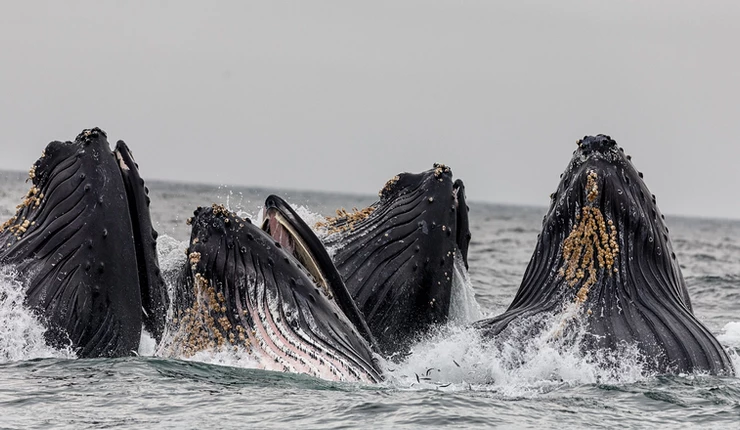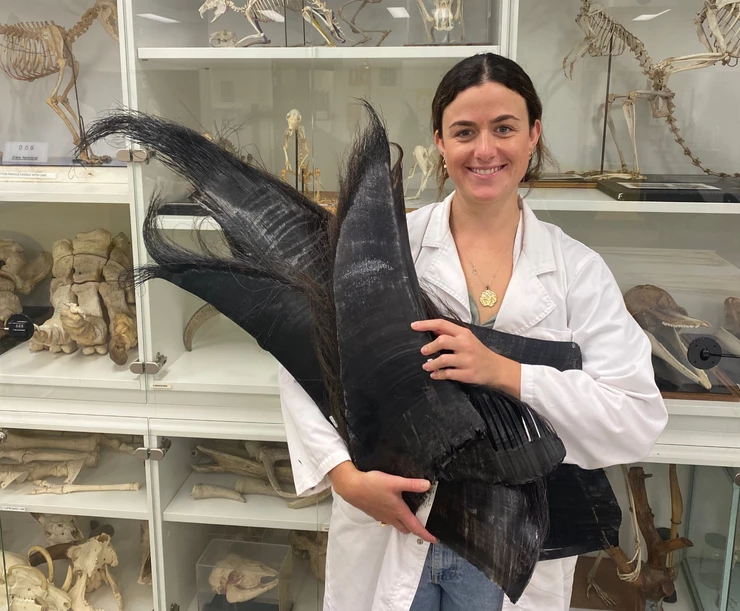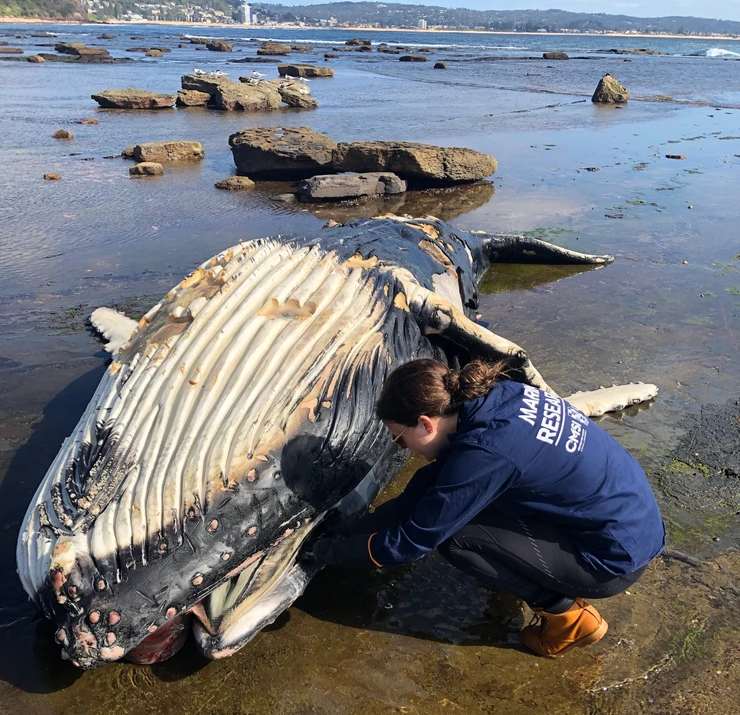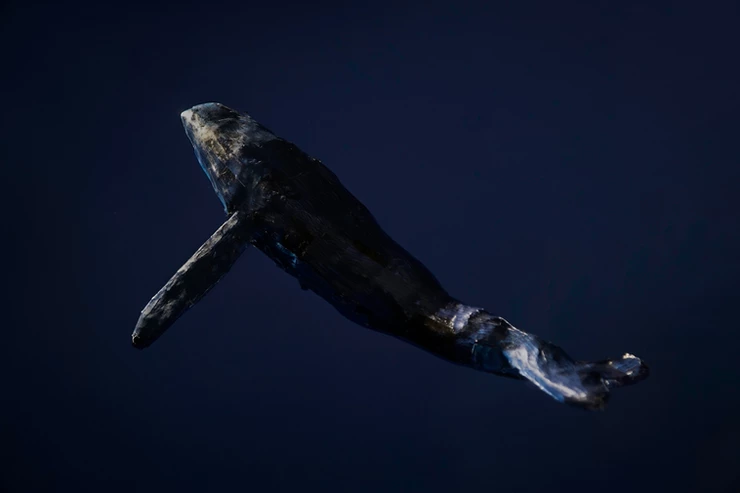We recently celebrated the removal of the Australian humpback whale from the endangered species list. However, we also warned that the effects of global warming increasingly threaten the survival of baleen whales. It is crucial that those who care for marine mammals continue to be vigilant in protecting ocean environments.

Image courtesy of Vivek Kumar
Our atmosphere is already over one degree warmer. More warmth creates greater humidity and more frequent catastrophic La Niña weather events, like the northern NSW and Queensland floods. In Antarctica, it expediates sea ice melting, which threatens the habitats of many species including krill, the main food source of baleen whales.
Now there is proof of its deadly impact, for whales at least.
And yet there are still those in government, business and the general public who choose to deny the effect of global warming. Now there is proof of its deadly impact, for whales at least.

PhD candidate Adelaide Dedden with whale baleen.
Ground-breaking international research by PhD candidate Adelaide Dedden and supervisor Professor Tracey Rogers, of UNSW, has tracked markers in whale physiology going back 60 years. They used stable isotope data preserved in whale baleen – the bristly feeding apparatus made of keratin – to unlock information about feeding and migration patterns of humpback whales and southern right whales. The study is published in the prestigious journal Cosmos.
“It’s basically a form of natural tagging,” Dedden says. “Stable isotopes within marine consumers like baleen whales reflect the isotope signals of the prey that they eat, and they can also tell you [about the] general region that they feed in.”
Less ice means less krill and so less food for the whales.
Dedden and Rogers matched the isotope information with climate data to understand how climate cycles are affecting whales. Their results indicate that La Niña events, such as the southern hemisphere has been experiencing this summer, pose a threat to whales.
Before making their lengthy journey to the warm winter waters of northern Australia, whales gorge themselves on tonnes of Antarctic krill, daily. The bulk they gain during this all-you-can-eat fest is supposed to support them throughout their migration, breeding, gestation and birthing months. But thanks to climate change there are fewer krill available. After a La Niña event, sea ice is less concentrated in the whales’ Antarctic feeding areas. Less ice means less krill and so less food for the whales.
Professor Rogers explains that sea ice helps krill survive the dark Antarctic winter, during which their normal prey – photosynthetic phytoplankton – can’t grow due to lack of sunlight. Instead, the krill feed on bacteria found on the under-surface of winter sea ice. They also use brine channels in the ice to hide from predators.
“Krill rely on sea ice for survival in the Southern Ocean, and sea ice is driven by different climates conditions that unfortunately, due to climate change, are becoming more difficult to predict,” explains Dedden.

“Our colleagues have shown humpbacks are leaner – a sign they’re experiencing poor feeding conditions – and have a higher chance of stranding in the years following La Niña events,” says Rogers.
Add to this the dangers of net entanglement, pesticide poisoning, plastic ingestion, Japanese whaling practices and collision with shipping vessels, and the idyllic migration of the magnificent humpback whale becomes a deadly obstacle race.
Without whales the ocean ecosystems will die. Without healthy ocean ecosystems most marine and land mammals will die. That includes us.

Image courtesy of Fabio Hanishiro
Subscribe to the Gowings Whale Trust site for more information and the opportunity to donate.
Congratulations to Adelaide Dedden and Professor Tracy Rogers for this brilliant work. Read the full article in Cosmos or the full research paper.